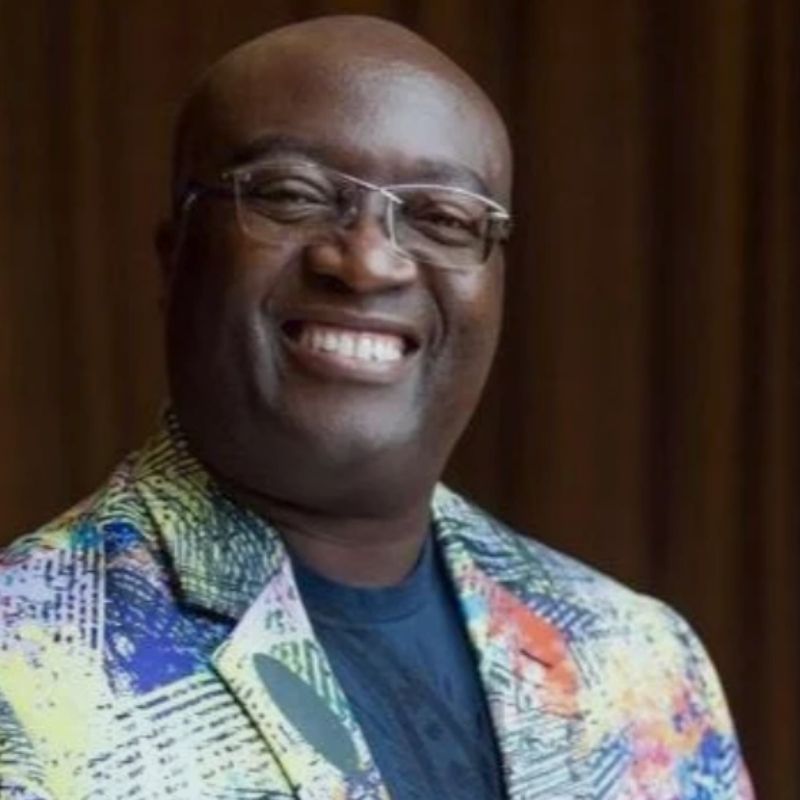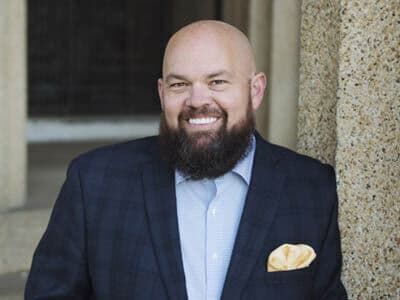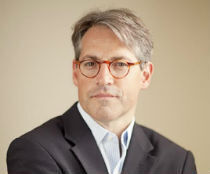Why Would We Settle for Christianity Lite?
Spiritual Life

Audio By Carbonatix
5:50 AM on Thursday, September 11
By Dr. Dennis Sempebwa, Spiritual Life
I hail from the ancient tribe of the Baganda in Uganda. Although Christianity had already spread to Northern Africa by the middle of the 2nd century—long before it reached Northern Europe—we in Sub-Saharan Africa continued to worship our own gods, completely unreached by the Gospel.
Our gods were feared and revered. Their representatives—the witch doctors, or medicine men and women—could heal, torment, or kill when invoked. I recall tales of one witch doctor casually floating on a goatskin across Lake Victoria without sinking. Water spirits, or mermaids, were said to appear often along the shores of this great lake, locally called Nnalubaale—“the home of the gods.” Young men were warned to beware of the light-skinned, flawlessly beautiful women with unusually long hair. To sleep with one, it was said, meant being dragged beneath the waters, never to be seen again.
Night dancers also haunted our townships. These were naked men with shiny, oil-covered bodies who terrorized villages under the cover of darkness. Deep in Africa, there were virtually no atheists. The very notion of rejecting belief in the supernatural was considered absurd. Indeed, this was a continent shrouded in pervasive spiritual darkness.
In the 15th century, the first white missionaries penetrated Sub-Saharan Africa. Though many were propelled by the antislavery crusade and European ambitions of colonization, they also challenged us to believe in an unseen God. The very thought was absurd. How could a loving God, invisible and dwelling beyond the skies, be real, much less trusted? Our gods were cruel, vindictive, and exacting. They demanded sacrifices and unbending allegiance. A God of love seemed weak.
To make matters worse, these Whites declared that their unseen God was “the King of kings and Lord of lords”—an outrageous insult to our culture and rulers. So we killed them.
But they would not stop coming. Eventually, we listened. And then we surrendered. We accepted their God and His Son, Jesus Christ. To our surprise, He was not weak at all. Confrontations with witch doctors revealed that this Christian God held far greater power than our gods. We encountered His overwhelming love and forgiveness for our sins. We were converted—radically saved and filled with the Holy Spirit.
With Christianity came more than salvation. It ushered in education, literacy, trade, and enterprise—though also colonialism and exploitation. Yet what made this faith utterly distinct was that we were not asked to understand this God of love; we were invited to believe. And by believing, we could do what Jesus did.
God’s promises to those early converts still ring true for us Africans: “
And these signs shall follow them that believe; In my name shall they cast out devils; they shall speak with new tongues; they shall take up serpents; and if they drink any deadly thing, it shall not hurt them; they shall lay hands on the sick, and they shall recover.” - Mark 16:17–18
And we saw it. Jesus still heals. He still opens blind eyes and unstops deaf ears. Miracles, signs, and wonders followed us. I personally witnessed at least eight dead people raised to life at the invocation of His mighty name. I myself have been poisoned by Islamic radicals and shot at point-blank range by armed thugs. Many of my brothers and sisters have suffered far worse—persecuted, raped, tortured, burned alive, or slaughtered for their faith.

We were never told that Christianity was a comfortable religion. We did not come to Christ for blessings, health, riches, or earthly comforts. We came to die to ourselves and live in Him. Our anthem became Paul’s words:
“For to me, to live is Christ, and to die is gain.” - Philippians 1:21
And even now, revival flames burn across East and Central Africa—what many scholars believe to be the longest continuous revival in the history of the Church.
In 1989, I was invited to visit London, England. Naively, I half-expected they might be handing out Bibles at Gatwick Airport. After all, this was the home of the Church Missionary Society—the very movement that had once dispatched brave pioneers like Sir Charles Stanley and Dr. David Livingstone. I could not wait to experience an English church.
What I found fascinated me. The service was carefully programmed: a somber welcome, the solemn thunder of pipe organs, a polished sermon, and a timely benediction. A rather short service, I thought. But where were the testimonies? Didn’t they realize that if the only voice heard was the preacher’s, the ordinary believer might assume that God only worked in the lives of a chosen, visible few?
When I asked, the answer came: “Such items must be planned and programmed to ensure a timely end to the service.” I could not understand it. Back in Uganda, we cared little for the clock. We came to the house of God to encounter Him, to hear from Him, to be touched by Him—and however long that took, it was time well spent. We never imagined confining God to a tidy 90-minute “Sunday morning experience.”
Four years later, I would visit the United States—and eventually settle here. The churches were grander, the services livelier than those in Europe. But in many ways, the story was much the same.
Evangelism has become attractional.
The gospel is packaged, merchandised, and sold with preachers marketing “Jesus the fixer”—the blesser, healer, comforter, or provider. Suffering, persecution, and the cost of discipleship are rarely mentioned. Instead, the message is: “Suffering is not of God, because our good Father only gives good gifts to His children.”
Worship has been reduced to performance.
It is now about style, polish, and entertainment. The band must be cool, tight, and marketable. Worship leaders no longer labor in prayer over song lists or sets; they simply echo what’s trending on social media or copy the latest release from their favorite bands.
Bible study has been replaced with interest groups.
Instead of deep diving into Scripture, gatherings revolve around shared hobbies and casual discussions. The focus is not on truth, but on fostering love, unity, and community—good things, but divorced from biblical grounding.
Stewardship has been monetized.
Giving is preached as an investment strategy: “sow a seed, reap a breakthrough.” Prosperity preachers peddle financial miracles, while retired corporate executives are hired to run churches with the best business practices—as though the Kingdom of God were merely another organization.
Pastors have become team leaders.
In many places, seekers are encouraged not to use the title “pastor” at all—just first names—because “in Christ we are all equal.” Team leaders must be witty, funny, and motivational. Sermons are replaced with short “talks,” capped at 38 minutes to fit so-called diminished attention spans. The content must encourage, never convict; hell and sin are off-limits.
Service has been rebranded as volunteerism.
Ushering, greeting, or helping is no longer a sacrifice—it is optional, based on convenience and preference, done only when and where people feel comfortable.
Church planting has been franchised.
Since pioneering is messy, risky, and costly, leaders are urged to brand, package, and replicate their model—turning churches into franchises that promise efficiency and replicability, even at the expense of authenticity.
I write to beg the Church of Jesus Christ in the West to pause and reckon with the true fruit of this brand of Christianity—this so-called theological progressivism. Are we truly making disciples, or simply recruiting members? Are we equipping servants, or enlisting volunteers? Are we dispatching missionaries, or manufacturing consumers? Have we slipped, almost imperceptibly, from Christianity into Churchianity? Could it be that we are, without realizing it, offering a more “palatable” substitute—Christianity-light?
It is time—past time—to return to the original intent, to theological originalism. The gospel was never ours to revise. The mandate has never changed. We are called to be sent. Authentic conversion produces a holy revulsion toward sin and a burning loyalty to the Great Commission:
“Therefore go and make disciples of all nations, baptizing them in the name of the Father and of the Son and of the Holy Spirit, and teaching them to obey everything I have commanded you.” - Matthew 28:19-20
No culture, no era, no generation has the right to tweak, distort, or bedazzle this charge. What we hold is not a brand but a trust—a two-thousand-year-old, blood-stained baton, passed down through martyrs, reformers, revivalists, and faithful saints who refused to compromise the truth. They laid down their lives so that we could hear. And now, we dare not drop it.
Therefore, “since we are surrounded by so great a cloud of witnesses, let us lay aside every weight, and the sin which so easily ensnares us, and let us run with endurance the race set before us” (Hebrews 12:1). Let us recover the fire of the early church. Let us reject the diluted, the franchised, the marketable. Let us return to the rugged cross, the costly grace, and the unshakable kingdom.
The hour is late. The cloud of witnesses watches. The nations wait. The Bridegroom comes. Church of the West—pick up the baton, and run.
Photo Credit: ©Unsplash/Tachina Lee
 Dr. Dennis Sempebwa was born and raised in Uganda. He has served in 89 countries as an award-winning recording artist, leadership coach, educator, and sought-after speaker. Holding numerous doctoral degrees and authorship of 18 books, Dennis is recognized as one of Africa’s top thought leaders and public intellectuals. He and his family reside in Texas, USA. Learn more at sempebwa.com.
Dr. Dennis Sempebwa was born and raised in Uganda. He has served in 89 countries as an award-winning recording artist, leadership coach, educator, and sought-after speaker. Holding numerous doctoral degrees and authorship of 18 books, Dennis is recognized as one of Africa’s top thought leaders and public intellectuals. He and his family reside in Texas, USA. Learn more at sempebwa.com.








